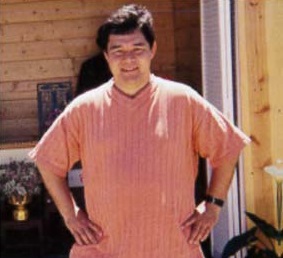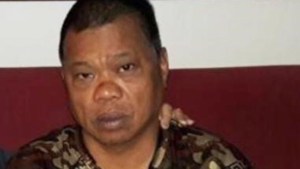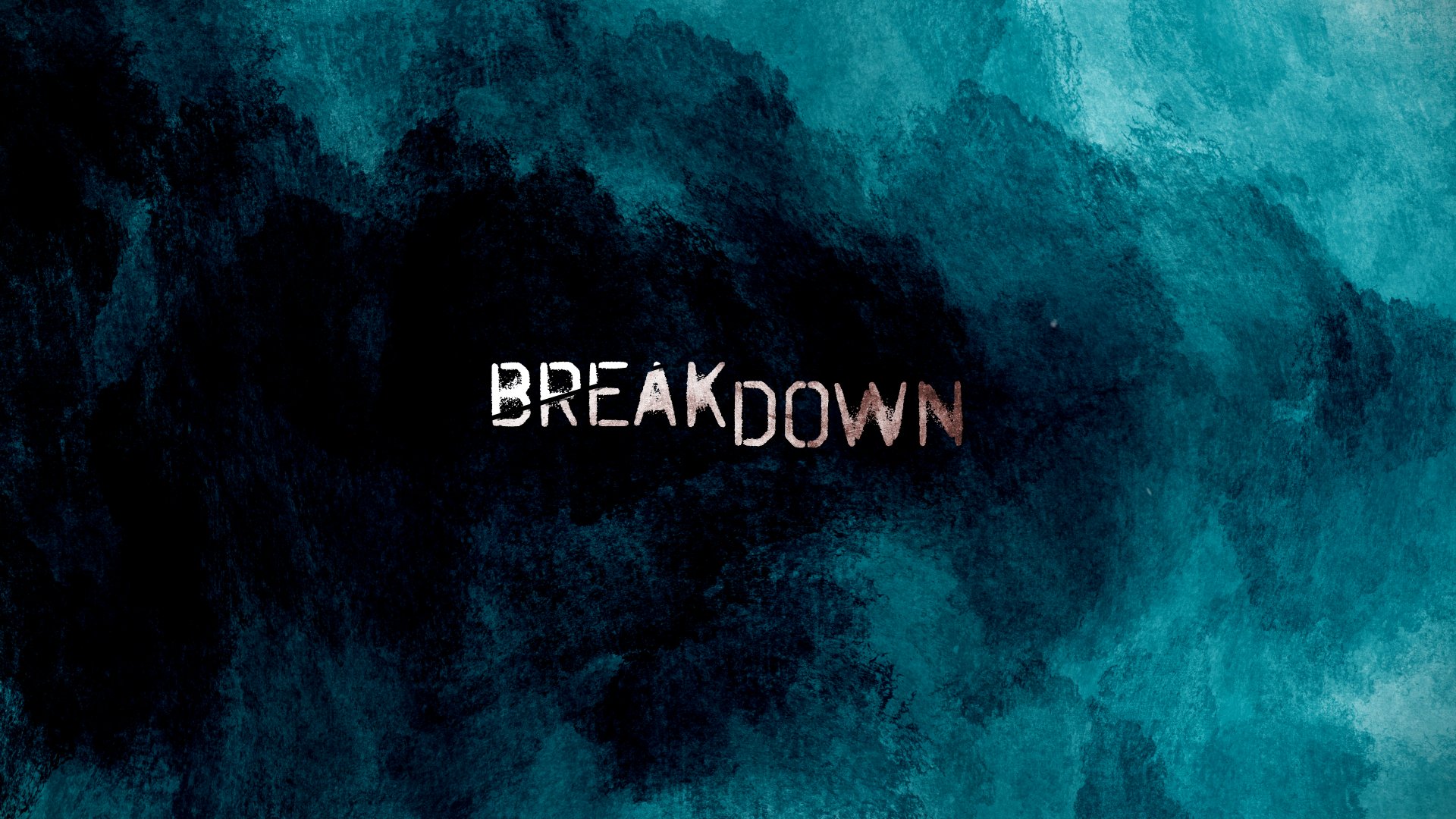The homelessness crisis in San Diego County. Jail deaths. Fatal police shootings. These are all serious issues that weigh on our community, and many times they can be directly tied to mental health issues. Listen to the stories of families who have seen the most tragic of outcomes, and the stories of people in criminal justice and law enforcement who are trying to address the challenges that come with a breakdown in the mental health care system.
Watch all three parts here.
If you or someone you know is in crisis, you can call the National Suicide Prevention Lifeline. There is someone available 24 hours a day at 1-800-273-TALK.
Jason Nishimoto
Jason Nishimoto’s mother Rochelle said he was good at math, intelligent. Her son loved to read. But she said he also kept a duffel bag packed in his truck because he was scared of the police and thought he might have to go on the run.
Rochelle Nishimoto said she remembers these things about her son as she talks about the years that led up to his death at the hands of law enforcement.
 Court filings
Court filings“My son Jason was one of the kindest souls on this Earth,” she told NBC 7. “He struggled to live his life the best he could.”
Jason Nishimoto was first diagnosed with schizophrenia when he was about 20-years-old, his mother said.
Rochelle said in September 2015, when Jason was 44, his brother called 911 after Jason swallowed a bottle of tranquilizers.
“I heard him on the phone saying, you know, he repeated several times, even mentally ill, he's suicidal,” she recalled.
The family told officers Jason had a history of suicide attempts, but Rochelle said when Jason was arrested, he was placed in solitary confinement at the Vista Detention Facility. There, the Sheriff’s Department said he used a bed sheet to hang himself.
Jason is one of the 34 inmates who have died by suicide in this county since 2012, according to jail death statistics confirmed by the San Diego County Sheriff’s Department.
San Diegans can click here for a list of mental health resources available in the region.
Rochelle sued, and court records show the county paid $595,000 to settle the case.
The county declined to comment on the settlement. Rochelle said she regrets settling her lawsuit, and wishes it would have been taken to a jury trial.
She said one more case of an inmate taking their own life, like her son, is too many.
What does it take? What the hell does it take to change it?
Rochelle Nishomoto, mother of Jason Nishomoto who died by suicide in Sheriff's Department custody in 2015.
Mental Health Crisis in Jails
San Diego County Sheriff Bill Gore oversees the county’s detention facilities and said for decades, his staff have been on the front lines of a local mental health crisis.
“For 10, 20 years we have been the mental health providers in this County,” Sheriff Gore said. “I don't say that to brag. I say it is a sad commentary, really."
Jail facilities far beyond San Diego County are dealing with the same problem.
In fact, 37% of adults in the state and federal prison system have a diagnosed mental illness, according to the National Alliance of Mental Health (NAMI).
About a third of the inmate population in San Diego County has some form of mental illness that requires medication, according to the Sheriff’s Department.
Gore said his department has gone from spending about $59 million eight years ago on medical and mental health care in his jails, to about $89 million in the current fiscal year.
The Sheriff’s Department points to new measures in place at the Las Colinas Detention and Reentry Facility in Santee as an example of their efforts to reform mental health care.
Photos: The Faces of NBC 7 ‘s ‘BREAKDOWN'
The facility said it has increased intake screenings to look for suicidal tendencies. Staff members have gone through more training, including suicide prevention, Gore said. The county has also added more mental health clinicians and doctors. They've even physically changed the facilities to make it less likely inmates can die by suicide, including fencing off second floors so people cannot jump, the department said.
At the psychiatric service unit, or PSU, there's a community room for different therapies, including visits from therapy dogs, and exercise and dance classes.

Still, concerns about treatment for inmates in San Diego County facilities have not gone away. The San Diego Union-Tribune recently reported that the San Diego County Democratic Party is calling for an independent state investigation into deaths in local detention facilities.
Gore said that given the growing efforts underway in the facilities his department manages, he is frustrated with the way his department is portrayed when it comes to dealing with mental health care.
“They work tirelessly to get these people the services they need, and then to be accused of not caring is really frustrating for us,” Gore said.
Dennis Carolino
Anthony Carolino said he misses being able to take pictures standing next to his brother, Dennis. He lost his brother in 2019, when Dennis was shot and killed by San Diego Police officers.
 Carolino Family Photo
Carolino Family PhotoThe aunt of 52-year-old Dennis Carolino called 911, reporting that he was throwing bricks at her. She said he was suffering a mental health crisis. When police arrived, she took them to the back of the home to find Dennis. Police shot and killed Dennis, who allegedly charged at officers with a shovel.
Nearly one in four people shot and killed by police officers in this country had a mental health condition, according to the National Alliance on Mental Illness.
"Our criminal justice system is broken,” said Anthony Carolino. “And we need to fix this.”
The family filed a claim against the city of San Diego. The city filed a motion to dismiss the lawsuit, but a judge disagreed. The case will likely head to trial.
The family claims San Diego Police officers should have waited for the Psychiatric Emergency Response Team (PERT) to arrive before using deadly force.
We need to stop this. Enough is enough.
Anthony Carolino, brother of Dennis Carolino.
PERT
PERT, made up of 72 licensed mental health clinicians who respond to calls with law enforcement officers and paramedics, has been available in San Diego County for many years.
Dr. Mark Marvin heads the team.
“I like to say that people with mental health conditions aren't just a package of symptoms,” Marvin said. “They're people that have stories and often very tragic, hurtful, emotionally painful stories.”
There are limitations to PERT. Currently, the team members are not available on the overnight shift. Also, when someone is a threat to themselves or others, PERT has to hold back until officers can make sure they can step in safely.
Mental Health Care Cycle
“We’re spending hundreds of millions of dollars to perpetuate a cycle that is fundamentally broken,” explained San Diego County Supervisor Nathan Fletcher.
He said we need to break what he calls the “Mental Health Cycle.”
He describes that cycle like this: when someone experiences a mental health crisis, usually a call goes out to 911. Police, a fire truck or an ambulance will show up, and they can only do a few things: leave the person where they are, take them to jail or take them to an emergency department. Once that person is stabilized, they are discharged. Then if they're ever in crisis again, the whole cycle repeats itself.
Luke Bergman, director of Behavioral Health Services within the County Health and Human Services Agency, said we need to totally change our approach to what's known as “continuous care management.” Bergman believes someone in crisis should immediately be matched with one specific caregiver, creating a “relationship" meant to last for years to come.
“So it means more consistent engagement in care,” Bergman said. “Because we know particularly people with behavioral health conditions, they'll wind up right back in Crisis Care again.”
This overhaul in the approach to mental health care could greatly impact the homelessness crisis.
Roland Childs
Roland Childs has spent many a night in a sleeping bag in the shadow of the high rises on Commercial Avenue in downtown San Diego.
He said his struggles with mental illness have led him to substance abuse, which has played a part in his homelessness.
“I did try to take the medication and the counseling and stuff and it kind of made me more crazy,” Childs said. “So I just kind of found, kind of an even path and just working it out.”
Childs’ story is a lot like so many others. The latest "We All Count" survey, an annual census of the homeless living in the San Diego region, found 37% of homeless people in San Diego County reported mental health issues. That’s more than 2,800 people.
Aaron Basila, a field worker for the nonprofit National Alliance on Mental Illness (NAMI), said “co-occurring disorders,” or people dealing with mental health issues and addiction, are prevalent in the system.
“That is a very real epidemic that’s happening right now. Heroin, heroin with fentanyl, meth, cocaine. It is a very difficult thing that we’re dealing with, with self-medication,” Basila said.
JOSEPH ADAMO
“It’s a tragedy that I haven’t gotten myself together yet,” Joseph Adamo told NBC 7.
Adamo has also been trying to overcome substance abuse, and has been in and out of temporary housing the past year. He currently is living on the streets in Spring Valley.
The San Diego Sheriff’s Department has been working to help Adamo through its Homeless Assistance Resource Team (HART), which focuses on rural areas.
“This is the first time that I’ve reached out for help with my mental disability and I’m kind of surprised at how helpful the people are and how much they’ve done for me so far,” Adamo said. “And hopefully getting the medication that I’ve avoided for 20 years, you know, spent a long time in prison, will make me a more productive member of society.”
Sgt. George Chrysler leads the HART team of eight deputies and two mental health clinicians. They offer everything from vaccinations and food stamps to housing services.
“We want these folks to be contributing members of our society, people working in our stores, people that we see as neighbors. We don’t want them living on sidewalks in front of our homes,” Sgt. Chrysler said. “We know there’s a better place and especially in San Diego County.”
Do you or your family need help? There are resources standing by. NBC 7 has put together a list of organizations in San Diego County that are there for you. To learn more, click here.
Watch Breakdown - Part III on Friday at 6:30 p.m. on NBC 7, or watch it here after it airs.

